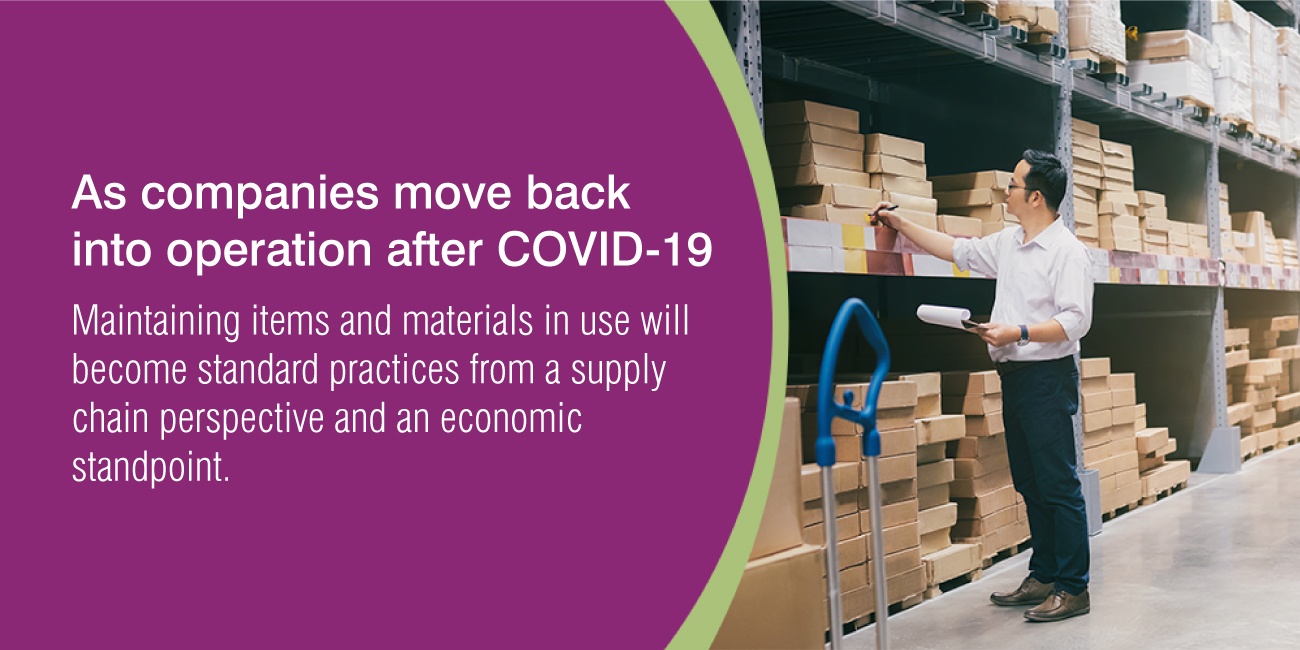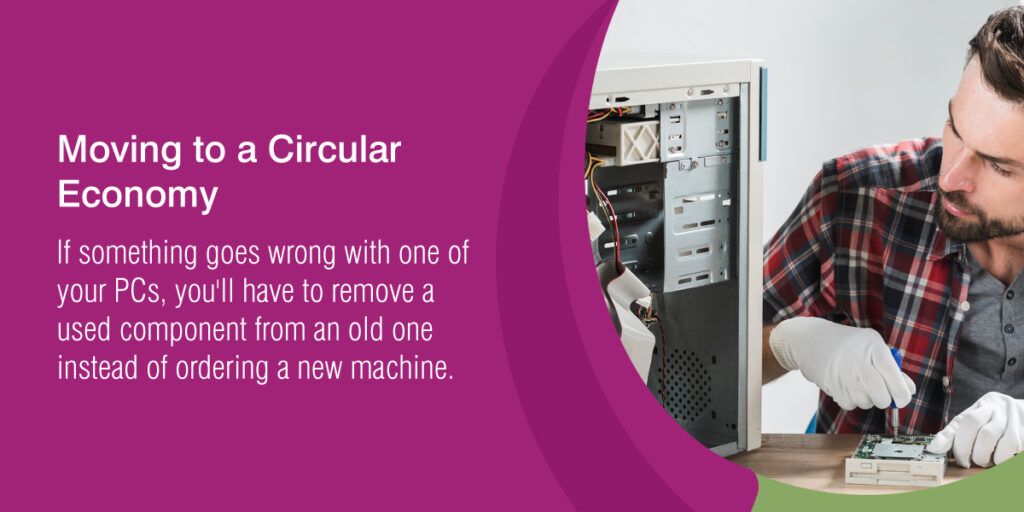For-profit companies eager to appear “green” both for public image and as a symbol of corporate social responsibility, embedding the circular economy in mission statements and strategic plans was an excellent method to demonstrate concern.
As companies move back into operation after COVID-19, boardrooms everywhere will undoubtedly learn a thing or two from the crisis. For example, on an IT Asset Disposition (ITAD) level, vague expectations about “maintaining items and materials in use” will become standard practices from a supply chain perspective and an economic standpoint.
Supply Chain Issues
While the Chinese metropolis of Wuhan was where the pandemic emerged, it also has one of the highest concentrations of high-tech manufacturing companies. The government’s decision to shut down Wuhan and many other cities rapidly and significantly affected global supply chains.
The impact of this was seen in the laptop industry. As organizations sent workers home to work, demand for such items and equipment rose as individuals rushed to get them while they were still available. The continuing pressures on IT products will be felt as old IT equipment reaches its End-of-Life (EOL) and IT executives seek new solutions.
Moving to a Circular Economy
COVID-19 will have a significant impact on the majority of businesses for many years to come, especially in those sectors where COVID-19 was not previously implemented. As a result, any IT management strategies that employees had planned for 2020 would be ruined, and attention will shift to minimizing expenditures.
On a basic level, IT departments will no longer appear to be computer shops full of brand-new equipment that is about to be dished out, but rather repair shops with motherboards, chips, wires, and tools at hand. If something goes wrong with one of your PCs, you’ll have to get your hands dirty and remove a used component from an old one instead of ordering a new machine.
A PC comprises at least eight basic components, so why replace the entire device when you can exchange one component for another? For example, let’s assume you need a new CPU, but you don’t have one on hand to recycle. Then simply source the single component and install it yourself. This is a mindset many companies will quickly need to embrace to ensure they can have the best equipment available at all times.
Evaluate Your Supply Chain
A thorough understanding of your supply chain is necessary. This entails beginning with the most essential items and going all the way down to the raw materials, if possible.
It’s doubtful that, pre-COVID-19, businesses were clued in on their supply chains since they’ve never had to be. However, knowing where your IT assets are sourced and how secure the supply chain is will become a part of all IT departments’ risk registers in a post-COVID-19 world.
Avail Recovery ITAD and The Circular Economy
Your supply chain begins with your present IT resources, which are critical to assess from an ITAD standpoint. As a result, it’s crucial to conduct a physical assessment of all company locations to determine the true number of assets and their status.
Once the asset register is complete, you’ll have a list of potential spare parts to distribute among your employees. Critical spare parts should be identified, as well as supplies and backup plans.
When IT assets reach the end of their useful life, they should be re-used, and components that are no longer operational must be stripped of any valuable materials and sold if feasible.
The pandemic might lead to a reconsideration of our environmental ties and how they influence our economic choices. For example, why ship a component halfway around the world when a perfectly good one sits in your IT department’s closet?
This is where Avail Recovery can help; we offer hardware trade-in programs that allow us to reuse components to make better and faster devices for your business. Avail takes the grunt work out of taking apart devices to salvage by letting us do the dirty work.
Avail can also help with data destruction on old hard drives and recycling devices too old to improve.
Get in touch with Avail today for more info on how we can help your business and for a free project assessment.

